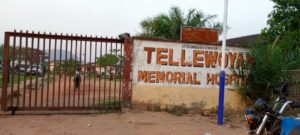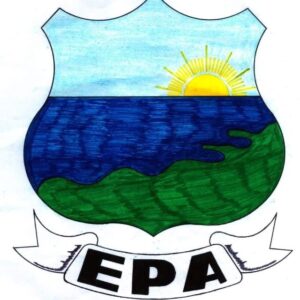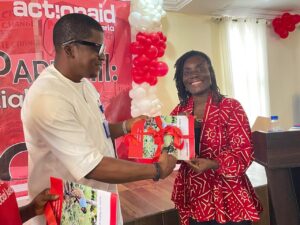“So Much Pain in the Streets” Disadvantaged Female in Margibi Alarms

By: Sally Denia Turlogbo, FeJAL Mentorship Fellow, +231 77 028 1023
Kakata, Margibi-May 26, 2024: It seems life on the streets is getting more difficult and unbearable as disadvantaged women in Kakata, Margibi County are calling on the government to take urgent action to save the next generation of Liberians.
Thousands of Liberian Youths are currently on narcotics substances which pose a threat to future generations. As it stands, there is no national rehabilitation center in the country to cater to disadvantaged youths.
Rehabilitation centers currently operating in the country are owned by private citizens. Liberia in 2023, enacted a new Controlled Drugs and Substances Act, referred to as the Drug Law. Liberia has been struggling with drug abuse, particularly cannabis and heroine commonly used in the country.
Reports have indicated that Liberia has one of the highest rates of drug use in West Africa, with approximately two in ten youths being users of narcotic substances which has contributed to crimes, including armed robbery, especially among young people living in ghettos, street corners, and cemeteries.
The Controlled Drugs and Substances Act of 2023 aims to regulate, restrict, control, limit, or eradicate the illegal export, importation, and use of narcotic substances within Liberia.
The law specifies that anyone who deliberately or knowingly imports controlled drugs or substances without the required license commits a crime, and the severity of the offense depends on the nature of the drugs or substance involved.
Annie Kollie, a Disadvantaged woman who has spent over 15 years in the street based in the Lango Town community, Margibi County expressed frustration and hardships as she struggled to meet the needs of her family.
“I must sleep with 3 to 4 men before I can get food to eat or something to wash clothes. There is so much Pain in the streets for us the females, especially daily for which I’m tired and want to be rehabilitated” she said.
Youthful Kollie added “I am afraid and worried about my Three kids who were born on the street, and I have no means to support them, it is very challenging to get the care they need when am a disadvantaged woman, a sex worker, and sadly an operated-on patient” she disclosed.
Pres. Joseph Nyuma Boakai in his first ‘State of the Nation’s’ address declared drugs and substance abuse as a public health emergency. The Liberian President made the declaration amid reports of growing waves of drug-related deaths, involving young people. According to Pres. Boakai, “Illicit drugs, especially KUSH are destroying the future of the country”.
The disadvantaged youths mainly women have alarmed over the difficulties they face in accessing food, shelter, medication, and other basic human needs in the streets. “These challenges have made their lives more difficult and challenging, don’t forget, some of us are still breadwinners and serving as sources of income for their children and family upkeep” she said.
Mamie Kromah, another Disadvantaged woman who hailed from Maryland County but currently resides in Lango Town Community in Margibi said, “I am a mother of three, I have stayed long in the street, and I want to leave this habit, but I don’t know my way out” she noted.
She explained that her home was forcibly taken away from her as well as peer pressure contributing to her being in the streets.
“At times, we get beaten by state security, some of our friends even die in the process, am afraid. I’m tired of sleeping with men, smoking weed, and taking coco and tie. We need help to be rehabilitated” she cried.
Nathaniel J Mulbah Jr., a high school dropout, age 26, and a disadvantaged youth, wants Humanitarians and other NGOs to take him to a rehabilitation center for proper medical attention. “I am a sports lover, I played for the black star, Dragon, from 2011 to 2013 and started taking substances in 2014 till the present. I first started with Grass and kush but now I’m taking in coco and tie and alcoholic substances” he said.
Meanwhile, Mr. Trevor Siafah, Coordinator for the Samuel Grimes’ Initiative for -RISK YOUTH Rehabilitation Center in Kakata City, Margibi County, disclosed that the center is helping At-risk youth in Liberia who are struggling with drugs. According to him, between 2022- 2023, 16 Clients were at the rehabilitation center undergoing counseling, medical, and psychological treatment. “After all the treatment a urine analysis test was conducted, and 16 Clients were free from substance use disorder.
The program also offered various vacation training programs like Driving, Music, Soap Making, etc. Mr. Siafah further explained that Samuel Grimes’ Initiative for -RISK YOUTH is also doing a – Patient program where clients will be within the facility undergoing treatment order to enhance this, the fees of #150 USD which include medication, Security, and staff along with (3) Three months with Three bags of 25 kg rice and provision.
He also highlighted security and finance as major challenges needed to maintain their client’s provision and mobility. Mr. Siafah however called on Humanitarian, NGOs, and the Government to help remove disadvantaged youth especially women from the streets. “So they can also take the lead by helping disadvantaged women and youth from the street and taking them to a rehabilitation center”.
Jolly Z. Davis Jr. and other disadvantaged youth who are currently at the SAMUEL Grimes’ INITIATIVE For AT -RISK YOUTH Rehabilitation Center are responding to treatment. “I’m so excited to be at this rehabilitation center today I have spent months here now and I’m doing much better. He encouraged other disadvantaged youth to stop taking in coco and tie, Krush, and grass because it’s going to destroy their immune system and their future.
Low Budgetary allocation to the Liberia Drugs Enforcement Agency has over the period contributed to the lack of enforcement according to the new LDEA boss Abraham Kromah Currently, LDEA has a little over $2million dollars in the FY2024 National budget, with a huge portion of the budget being used for personal cost.
This content was produced by the Female Journalists Association of Liberia (FeJAL) Mentorship Fellow, through the support of Internews USAID Year III Media Activity Reporting Program






